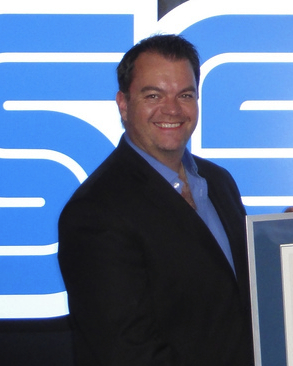Last week, in the second part of our three-part marketing special, we spoke with Bethesda’s Todd Howard and EA Sports’ Peter Moore about adjusting to the AAA marketing landscape and spending big on big titles. Today, we conclude the series by shifting more to the digital side of the business. The increasing digital presence of games has caused major publishers to rethink their businesses. Sega of America is now entirely focused on digital (Europe handles traditional retail), and Ubisoft recently formed a digital division and hired Microsoft veteran Chris Early to lead it. [a]listdaily recently spoke with both about how marketing changes on the digital side.
From a marketing perspective, it seems like games cost so much that they almost require an equally expensive campaign just to make sure you get noticed and can recoup your investment. But in the digital world things are different. So how does it change when you’re going into digital? It’s sort of a different marketing philosophy, isn’t it?

Chris Early: It depends on the type of game you’re talking about. If you’re talking about the digital download of Assassin’s Creed, that’s much more in line with the traditional release of the product on console as well. The difference is that digital versions will be available twelve months from now, twenty-four months from now, thirty-six months from now, whereas you might not as easily find that in the store available for sale. So, there is an ongoing element to even the traditional marketing approach for catalogue titles. When you talk about, whether they be light MMOs or Facebook games or things like that, where it really is a game more as a service as opposed to a game as a one-time launch, then you have an ongoing need for marketing, because the product will evolve as well. As you add new features to a product, you’ll want to talk about that. You’ll want to communicate that message out to people. When you look at traditional MMOs like World of Warcraft, you can see that they have a marketing budget that just continues to go on. Yes, it’s more concentrated at certain times when new expansions come out, but it is a pervasive and ongoing effort.
When you look at the digital side versus the traditional publishing side, now that there is a clear distinction in Europe and the U.S., from a marketing perspective, it’s a very different approach. How do you separate that in your strategy when you’re marketing that digital title versus the traditional retail title?

Darren Williams: Sometimes it’s very clear and it’s quite simple to make that distinction. When we’re speaking with Apple and they talk about publicizing and advertising iPhone, iPad, [and] iPod games, it’s very, very late breaking, so the distance from the announcement to the launch of the title could be very, very short. It could be weeks sometimes. There’s an established model for the packaged goods for something of a core IP. It’s evident now you need an eighteen-month cycle. You need to announce big, you’ve got to be showing the product more regularly . . . A lot of that, I think, was due to slippage but it’s become a bit of an industry norm. We’re asking people to spend $60, so they want to find out about the game. If you’re asking them to spend $2.99, $5.99, it becomes a little bit more impulse. Where it’s going to be interesting and it will be a challenge, but it’s an exciting challenge, is when we have something like Sonic 4 Episode 1. Technically, its definition within SEGA is that it’s a digital title, but hey, it’s Sonic, so it’s a big gaming brand. It also happens to be on XBLA and PSN which, at the end of the day, are Xbox 360s and PS3s.
So when we announced that, we got an awful lot of interest from the Kotakus and Joystiqs and IGNs and the classic gaming websites, but it’s a digital title. So does that mean we can market it in the three-month period, does it need to be an eight or nine month period? We’ve made a play there, and it’s going to have a fairly lengthy campaign. It is going to be interesting the more titles we do, because the fact that it’s on XBLA and PSN and the pricing is a little more appropriate for the impulse purchase . . . will it move? Will we have to go down a six-month, eight-month route? Could we do it in two months? Who knows, I think everybody has to still try and figure out exactly what this all means. The world is changing. The packaged goods way of doing stuff still remains viable and necessary for packaged goods. I think there will be a few happy accidents along the way for everybody at least in terms of how you bring these things to market.
Speaking of the digital marketing, and I’ve not really seen this and I’m wondering maybe if it’s because it’s just not worth the investment, to actually put TV ads out there for digital games which cost, obviously, a lot less to make; you’d probably have to spend way more on marketing than you would to actually create the game. Maybe it makes no sense. If there is more of a shift to digital and you still have to get the word out, maybe it starts to shift to where you do want to advertise a digital product on TV?
DW: You’re absolutely right: advertising is not cheap. TV advertising is not cheap. It’s going to have to be a hell of a ballsy bet to put TV money behind a digital title at this stage purely from a PR perspective. It’s not as though a digital title is any way inferior, or people are any less interested; it’s just you’ve got to have a good hard look at the numbers and [ask] “do we want to do this” What is interesting is promotional cooperation with a first party. For example, Super Monkey Ball featured on iPhone advertising for Apple. That’s a way you can sort of do that to a point. I think where digital is great and where there’s a lot of learning for all marketing people is you can get so much more direct. You don’t necessarily end up doing the big, flashy, eye-catching parts of marketing in terms of the huge outdoor campaign or a huge TV campaign, which I think is going to be a bit of a challenge for most corporations, because the marketing is going to appear a lot more invisible and a lot more direct. My boss is going to have to understand the fact that [just because] we haven’t put a game on TV doesn’t mean we’re not marketing it, we’re just doing it a different way and going a lot more direct. And that’s a great challenge to do that. XBLA is fantastic at doing that, Sony is learning, so you can get some great access to their databases and directly through their portals. So it’s an interesting mix. TV (Laughter) I wouldn’t have a chance of getting that signed off at the moment just because to get to the party you’re talking millions. We all need to make money.

